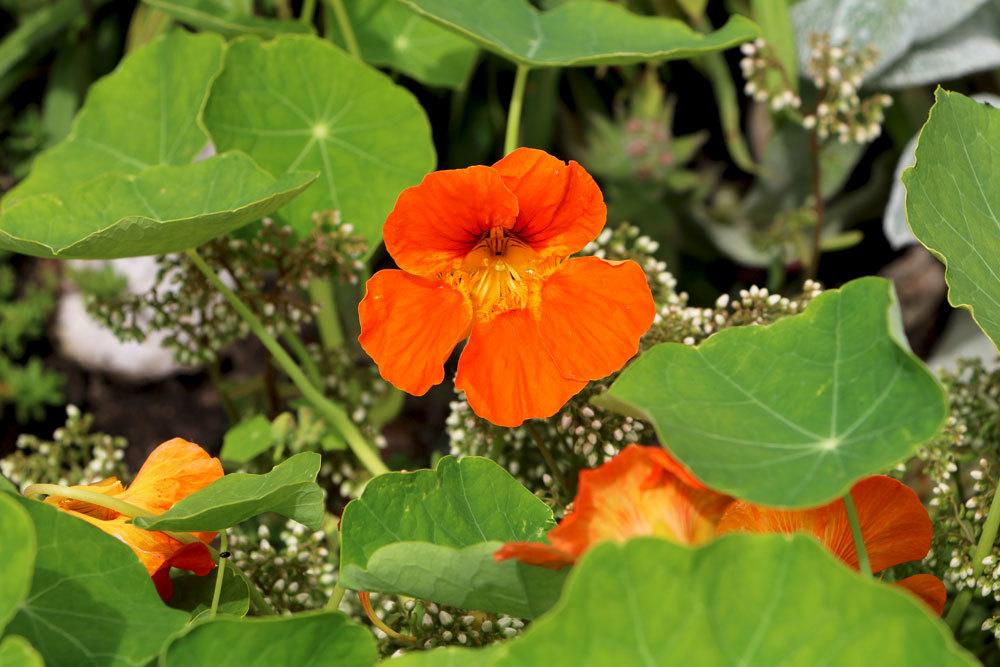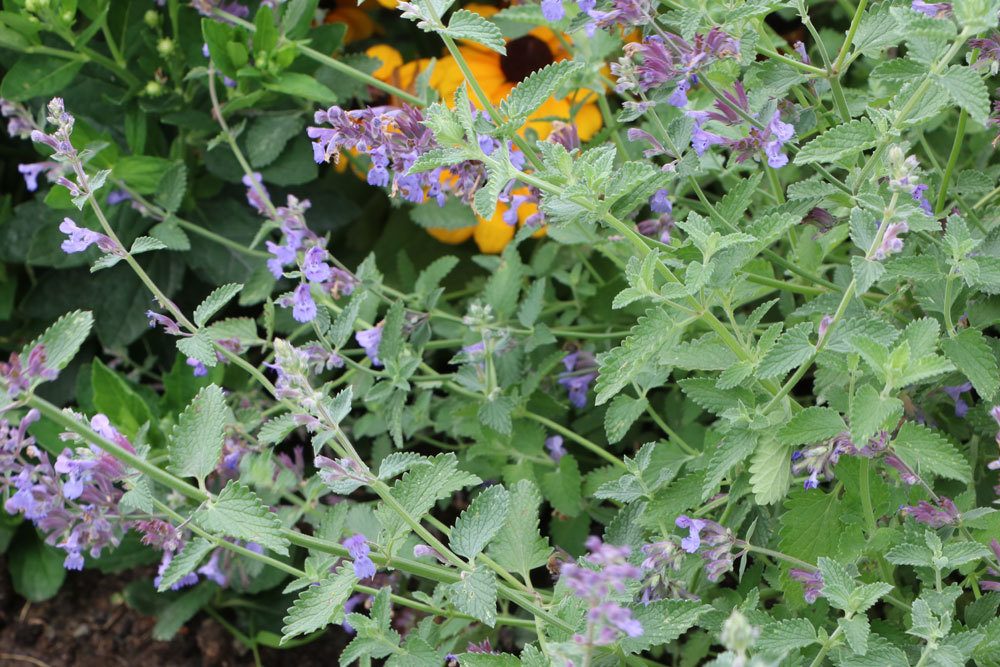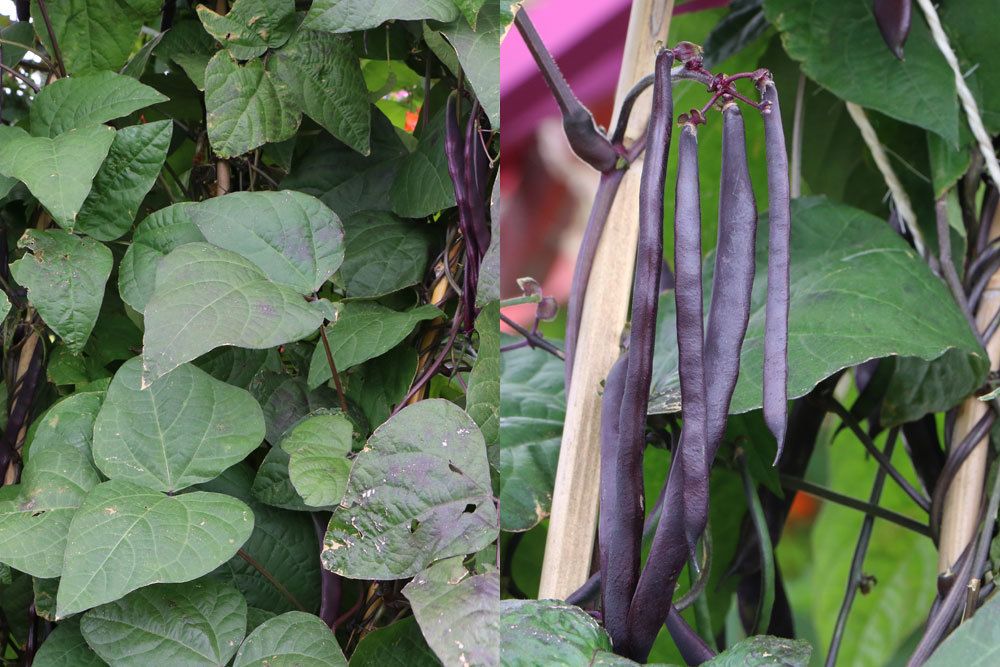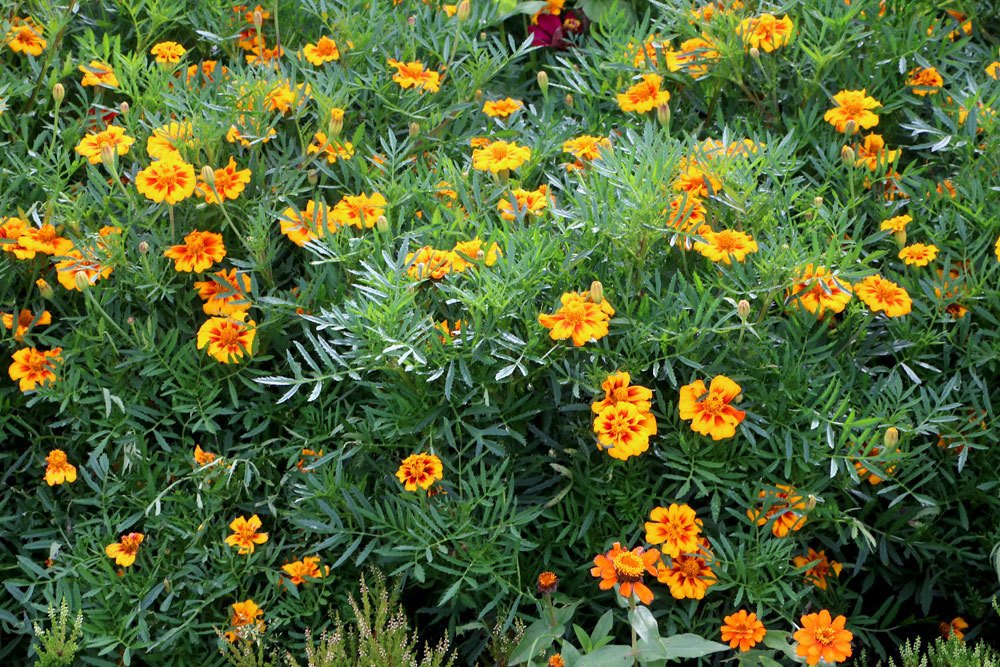Not only in summer, but now well into October, flies and mosquitoes accompany us in the garden, on the balcony or terrace. And some of the pests are even so brazen that they do not even stop in front of our living rooms. And the question arises, how do I get rid of these uninvited guests? If you don’t want to reach for the chemical mace right away, you should try plants and herbs.
Fly and mosquito repellent
When insects become uninvited guests, they are usually attracted by a scent that is fragrant to them. In the case of flies, for example, this can be food leftovers on plates or the poorly closed organic waste garbage can. Since it is sometimes difficult to locate the attractant precisely, countermeasures should be taken and the pests should be beaten with their own weapons, namely by spreading unpleasant scents for the insects. This can take the form of odor-intensive plants:
Contents
Nasturtium (Tropaeolum majus).
Nasturtium acts against the pests in two ways. First, they do not like the smell of the medicinal herb, and secondly, climbing varieties form a privacy hedge, which additionally helps against the pests. In addition, Tropaeolum majus is robust and easy to care for. Other characteristics are:
- fast growing
- shade tolerant
- edible flowers and leaves
- Nasturtium Tropaeolum majus

Catnip (Nepeta cataria)
Catnip can solve two problems. It calms nervous house cats and additionally keeps away uninvited insects. True catnip gives off a lemony scent that is also reminiscent of mint. Its small light purple flowers are a favorite nectar source for bees and bumblebees. In the border, catmint can grow up to 100 centimeters tall. However, since it grows very well in smaller pots or containers, it can also be placed on the windowsill to ward off flies and mosquitoes.

- robust and hardy
- can overwinter in the garden
- perennial
- upright growth
Lavender (Lavandula angustifolia)
The fact that lavender can be used to protect food and clothing from moths may be known to many amateur gardeners. So it is also not surprising that the pretty plant with its intense smell also drives away other insects. Lavender thrives both in the rock garden and in a flower pot on the windowsill. Outdoors, it can even reach a height of 150 centimeters. In terms of location, it loves sunny warm, like the mosquitoes it is designed to repel. In addition, hardy Lavandula angustifolia needs:
- a sunny and sheltered from the wind location
- lean substrate
- Lavender, Lavandula angustifolia
Peppermint (Mentha)
Not only peppermint, but also other varieties of mint, are perfect for protection against mosquitoes and other insects. However, the plants release their odor only when leaves or shoots are injured. Therefore, they can only be used as a defense, periodically rubbing mint leaves between their fingers and then placing them on the windowsill. In terms of care, peppermint is very unpretentious:
- sunny location
- dry soil or substrate
- Peppermint, Mentha x piperita
Tip: Although peppermint thrives wonderfully in a flower pot, it is only conditionally suitable as a tub plant. Therefore, it is better to place several small pots for protection.
Basil (Ocimum)
Although basil is somewhat sensitive to drought and waterlogging, it is otherwise not very demanding in terms of care. To ward off flies, it is best to place the basil pot on the windowsill. Basil feels especially well in a warm and sunny location, protected from drafts.
Chives (Allium schoenoprasum)
While basil is suitable for the windowsill in the sun to repel flies, chives are used on cooler windowsills. Because flies also give this kitchen herb a wide berth. Chives grow between ten and fifty centimeters high. When caring for them, you should pay attention to the following:
- water regularly
- avoid waterlogging
- remove excess water from the saucer
Tomatoes
Tomatoes not only taste good, the plants also keep mosquitoes and other pesky insects at bay. Since they act only in the immediate vicinity around the plant, you should choose well the location for defense. You can achieve complete protection only if you “fence” your balcony or terrace with tomato plants. Tomatoes love the sun and therefore thrive best in a sunny spot. However, if you do not want to harvest, you can put the plants in a shady place.
Tomato plant in the garden
Tip: Tomatoes do not tolerate waterlogging and wet leaves.
Bush and pole beans (Phaseolus).

Bush or pole beans, along with tomatoes, are among those crops that can be used to drive away pesky pests. Depending on the variety, they grow bushy or climb several meters high. In addition, there are special varieties that are suitable for keeping in tubs on the balcony. Bush or pole beans are annual plants whose plant parts are inedible when raw. They thrive best in a sunny location.
Geraniums (Pelargonium)
Geraniums provide a blooming oasis including insect repellent. The classic among balcony plants can be planted in one color or mixed. Geraniums thrive just as well in a balcony box as in a pot or tub. Even otherwise they do not make great demands on the care. Regular watering and a sunny to semi-shady spot are usually quite sufficient for them.
Geranium with pink flowers
Tip: To stimulate flowering, remove wilted inflorescences regularly.
Marigolds (Calendula officinalis)
Best known as medicinal plants, marigolds also help against flies. To ward them off, they are placed in the flower bed or balcony box. It is important that the location has a lot of sun. If the flowers are cut and go into the vase, then they also drive away the pests at the dining table. While you can drive away flies with marigolds, you attract bees and bumblebees so at the same time. Because for these insects marigolds are a welcome source of nectar.
Marigold (Tagetes)

Marigolds as a repellent against flies and other insects is only recommended on a safe balcony. Although the yellow to orange blooming flowers help against the pests, slugs love to eat the flowers. And since you don’t want to swap one pest for the next, so caution is advised with this use.
Student flower belongs to the composite plants.
These plants not only improve many dishes, but also help to repel flies and other pesky insects:
- Lemon Balm
- Rosemary
- Lemongrass

